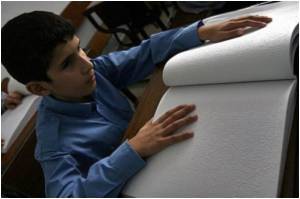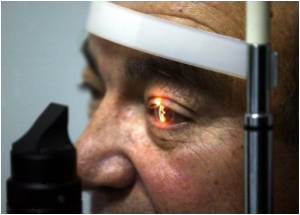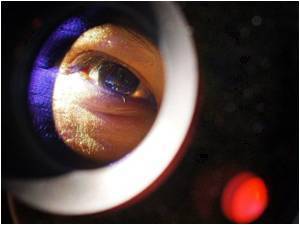
Using functional magnetic resonance imaging (fMRI), the researchers found that the blind use specialized "modules" in the visual cortex that process the spatial location of an object when a person localizes it in space. More generally, they believe that the different functional attributes that make up vision, such as analysis of space, patterns, and motion, still exist in the visual cortex of blind individuals. But instead of using those areas to understand what the eyes see, the blind use them to process what they hear and touch because the same components are necessary to process information from those senses.
In this experiment, which included researchers from Belgium and Finland, 12 sighted and 12 blind participants agreed to perform a set of auditory or tactile tasks.
In one task, volunteers wore stereo headphones while in the fMRI machine, and they reported where in space the variety of sounds they heard came from. In the other test, they wore piezo-electric vibrators on each finger, and the goal was to report which finger was being gently stimulated.
"We found that the visual cortex in the blind was much more strongly activated than it was in the sighted, where visual cortex was mostly deactivated by sounds and touch," the study's lead investigator, Josef P. Rauschecke said.
"Furthermore, there was a direct correlation between brain activity and performance in the blind. The more accurate blind people were in solving the spatial tasks, the stronger the spatial module in the visual cortex was activated.
Advertisement
The research ahs been published in the journal Neuron.
Advertisement













